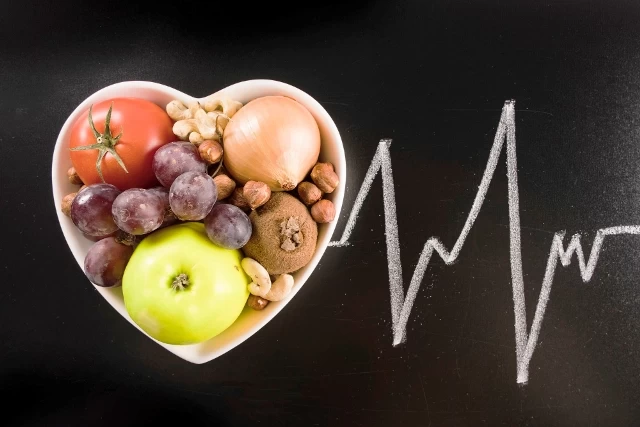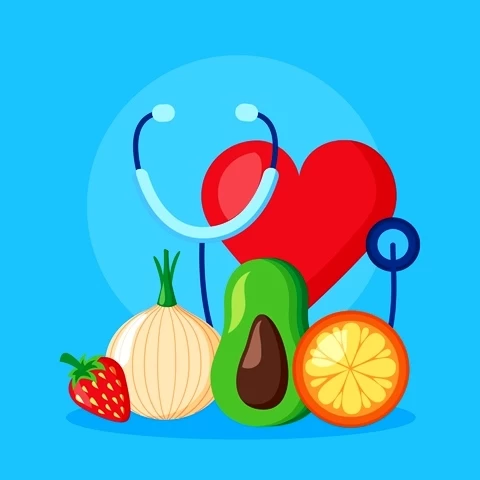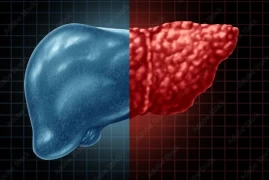
Foods that Help with High Blood Pressure
- Foods that Help with High Blood Pressure
- Causes of High Blood Pressure
- Foods that Help with High Blood Pressure and Recommendations
- Fruits That Help with High Blood Pressure
- Vegetables That Help with High Blood Pressure
Causes of High Blood Pressure
High blood pressure (hypertension) is a condition where the pressure in the blood vessels exceeds the normal levels. There are several types of hypertension, each with different underlying causes. Here are the common causes of high blood pressure:
- Primary (Essential) Hypertension: The exact cause of this type of hypertension is often unknown, but it's believed that genetic factors, aging, obesity, and lifestyle habits play a role. Primary hypertension usually develops slowly and may go unnoticed for a long time.
- Secondary Hypertension: This type of hypertension arises as a result of another health condition (such as kidney diseases, hormonal problems, heart diseases). Secondary hypertension generally improves when the underlying cause is treated.
- Obesity: Individuals who are overweight or obese are at a higher risk of developing high blood pressure. Excess body fat can negatively impact the cardiovascular system, leading to increased blood pressure.
- Salt Intake: Consuming high amounts of salt can elevate sodium levels in the body, leading to fluid retention and increased blood pressure.
- Alcohol and Smoking: Excessive alcohol consumption and smoking can contribute to elevated blood pressure.
- Stress: Being under constant stress can trigger the body's "fight or flight" response, temporarily raising blood pressure. Over the long term, this can contribute to high blood pressure.
- Sedentary Lifestyle: Physical inactivity can lead to weight gain and elevated blood pressure.
- Diet: Consuming a diet low in fiber, high in fats, and rich in processed foods can increase the risk of high blood pressure.
- Genetic Factors: Family history can increase the risk of hypertension.
- Hormonal Changes: Hormonal fluctuations, especially in women, can influence the risk of high blood pressure.
- Chronic Kidney Diseases: Impaired kidney function can disrupt fluid and salt balance in the body, leading to elevated blood pressure.
High blood pressure can progress insidiously and lead to serious health issues in the long term. Therefore, regular blood pressure measurements, adopting a healthy lifestyle, and seeking medical assistance when necessary are important. Taking measures to reduce the risk of high blood pressure, such as balanced nutrition, physical activity, and stress management, is crucial.
Foods that Help with High Blood Pressure and Recommendations
High blood pressure, characterized by elevated pressure in the blood vessels, can lead to serious conditions like heart disease, stroke, and other health issues. Dietary habits play a significant role in managing hypertension. Here are foods that are beneficial for high blood pressure and dietary recommendations:
- Foods Rich in Potassium: Potassium helps regulate sodium levels and supports blood pressure control. Including potassium-rich foods like bananas, avocados, potatoes, spinach, and fish in your diet can be helpful.
- Foods Containing Magnesium: Magnesium is essential for muscle and blood vessel health. Nuts, seeds, leafy greens, and whole grains are good sources of magnesium.
- Low Sodium Diet: Reducing salt intake can help manage blood pressure. Avoiding processed foods and foods high in sodium is recommended.
- Omega-3 Fatty Acids: Foods such as fatty fish (especially salmon), flaxseeds, and walnuts contain omega-3 fatty acids, which can aid in lowering blood pressure.
- Fruits and Vegetables: Colorful fruits and vegetables contain antioxidants and fiber, supporting vascular health and blood pressure regulation.
- Low-Fat Dairy: Low-fat milk, yogurt, and cheese are sources of calcium that may help lower blood pressure.
- Limiting Caffeine: Excessive caffeine consumption can raise blood pressure. Monitoring coffee, tea, and energy drink intake is advised.
- Limiting Alcohol: Excessive alcohol consumption can contribute to hypertension. Limiting alcohol intake or quitting altogether can be beneficial.
- Balanced Diet: Adopting a balanced and diverse diet can help meet your body's nutritional needs.
When changing your dietary habits, it's important to consult a healthcare professional, especially if you have chronic health conditions or take medications. Following your doctor's recommendations and developing healthy lifestyle habits, including regular exercise, are key to long-term success in managing high blood pressure.

Fruits That Help with High Blood Pressure
To control high blood pressure and maintain a healthy blood pressure level, consuming the right fruits and vegetables is important. Here are fruits and vegetables that are beneficial for high blood pressure:
- Bananas: Rich in potassium, bananas can help regulate blood pressure.
- Oranges: Known for their vitamin C and fiber content, oranges can help protect blood vessels and lower blood pressure.
- Watermelon: With its high water content and the component citrulline, watermelon can dilate blood vessels and lower blood pressure.
- Strawberries: Rich in antioxidants, strawberries can support vascular health and help control blood pressure.
- Kiwi: Kiwi contains potassium, magnesium, and vitamin C, which can aid in regulating blood pressure.
Vegetables That Help with High Blood Pressure
- Spinach: With its high potassium and magnesium content, spinach can assist in lowering blood pressure.
- Broccoli: Broccoli is rich in potassium, fiber, and antioxidants, which can contribute to lowering blood pressure.
- Tomatoes: Tomatoes contain a compound called lycopene, which supports vascular health and may help lower blood pressure.
- Carrots: Carrots are known for their beta-carotene content, an antioxidant that can aid in blood pressure regulation.
- Zucchini: High in potassium, zucchini can help maintain blood pressure.
- Potatoes: Potatoes are notable for their potassium content. However, opt for healthy preparation methods like boiling or baking.
The blood pressure-regulating effects of fruits and vegetables extend beyond their consumption alone. Adopting a healthy eating pattern, paying attention to low salt intake, and engaging in physical activity are also important factors. Additionally, if you have any medical conditions or are on medications, consider your healthcare professional's advice.






